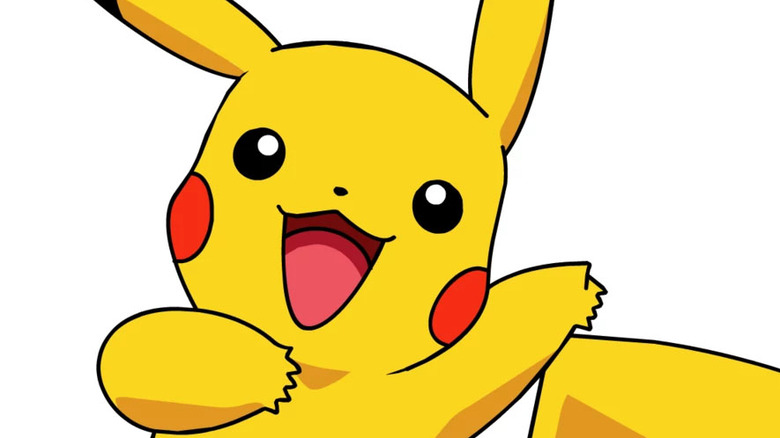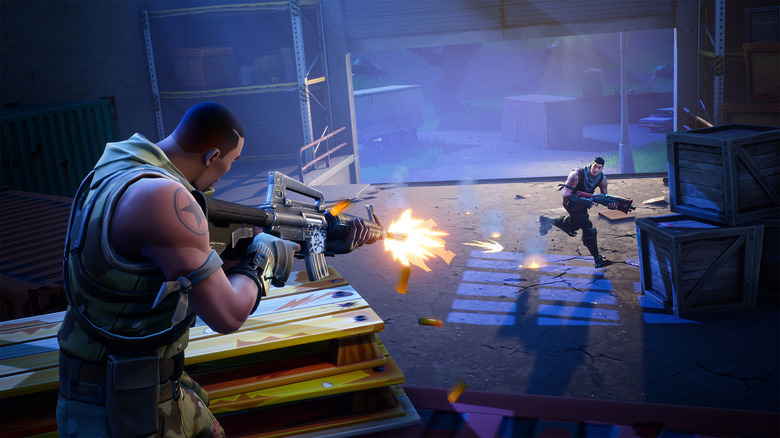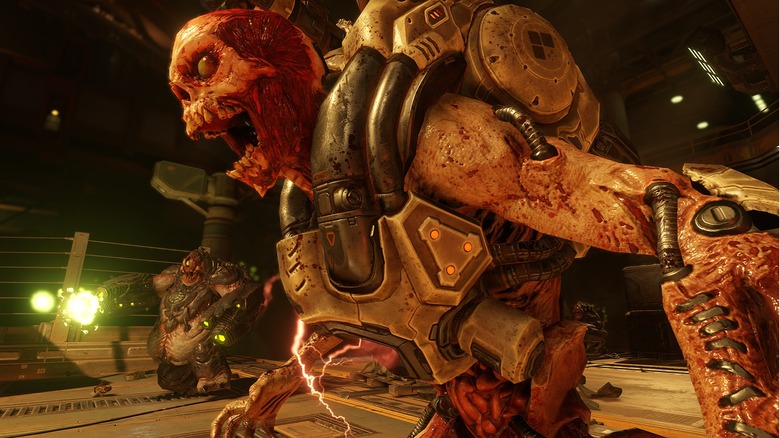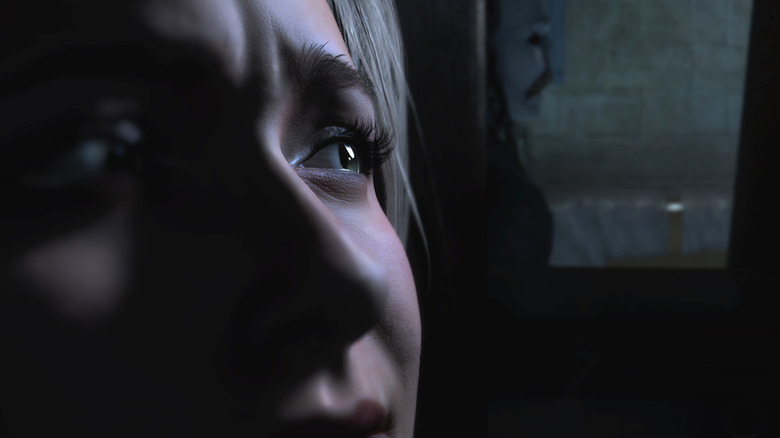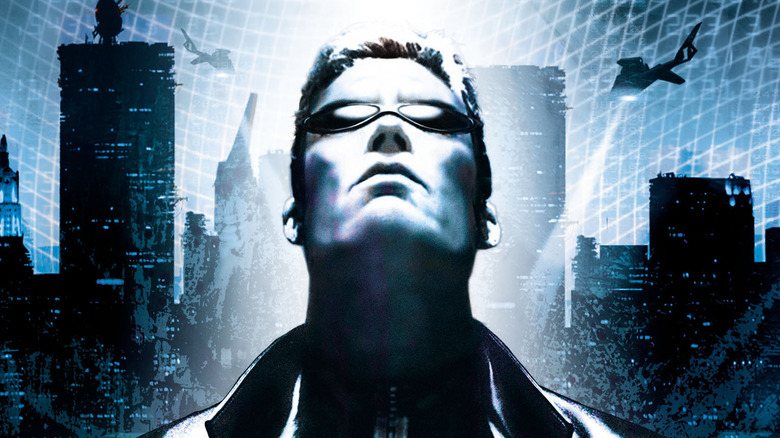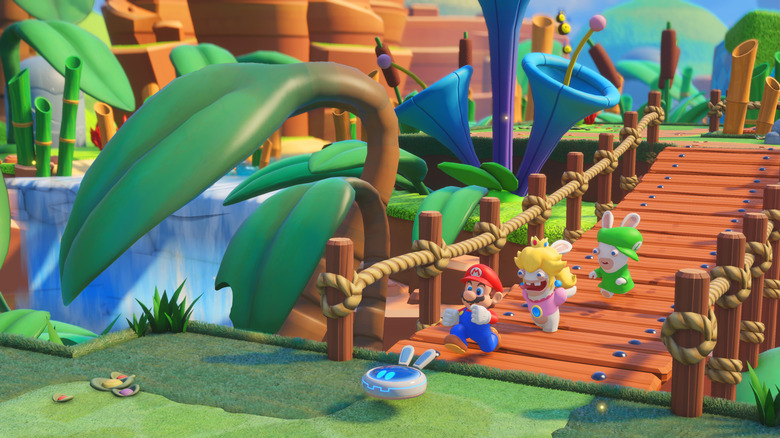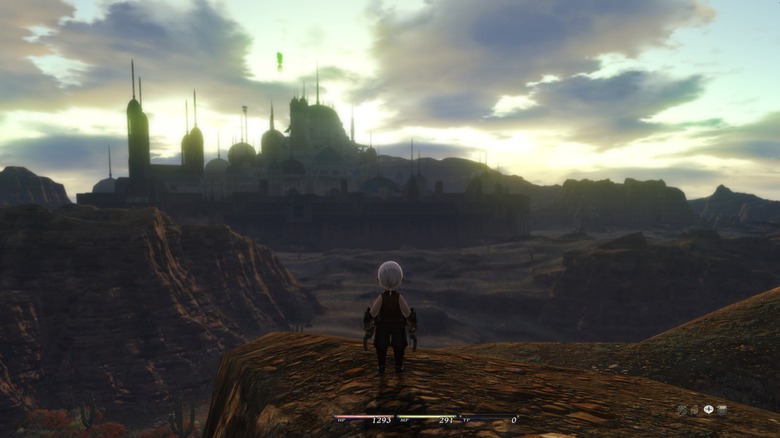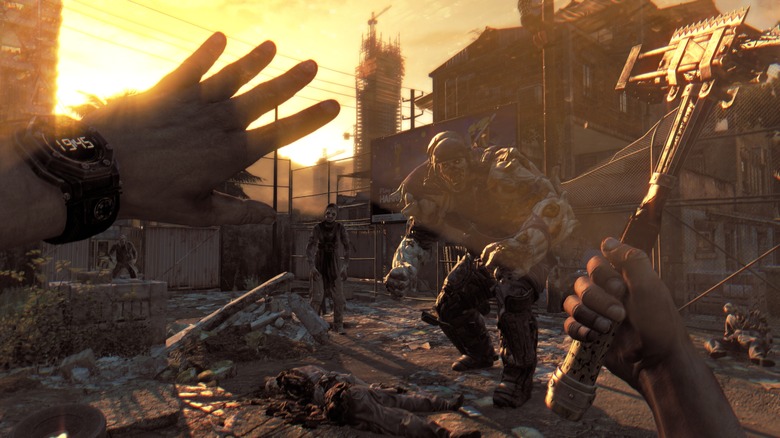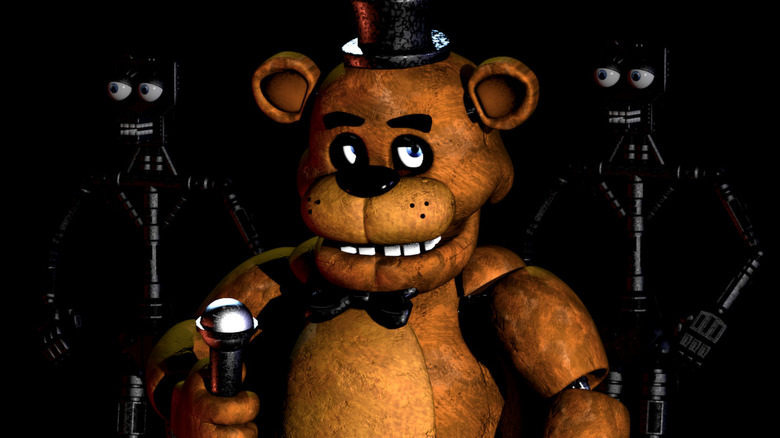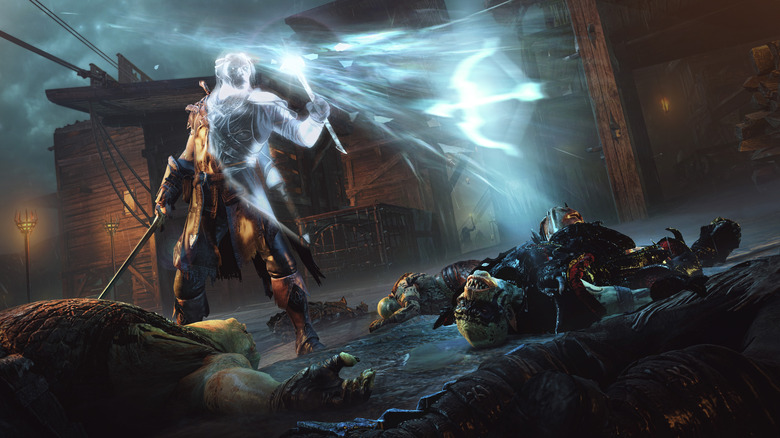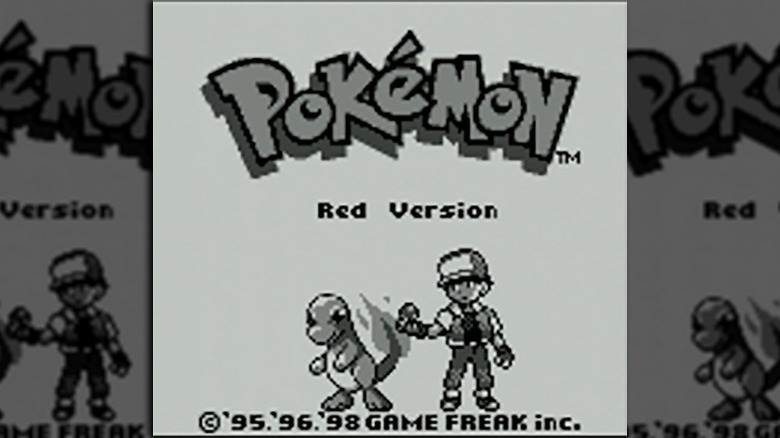Surprising Gaming Hits Everyone Thought Would Be Flops
In the topsy-turvy world of video games, nothing is for certain. A major name in the title doesn't always translate to sales success (just ask E.T.). A world-class designer in the driver's seat doesn't mean a game will be an instant hit (sorry, Mr. Schafer). Even the most trusted names in the industry deliver the occasional clunker (hey there, Virtual Boy), and while a sequel to a well-received title usually does pretty well, it's far from a sure bet (Dead Space, we're looking at you).
On the flip side, sometimes the biggest hits come out of nowhere. That game with the janky trailer, warmed-over game mechanics, dated graphics, and seemingly lackluster development team? That might just end up being great. As the following games prove, even experienced professionals can't always tell how well a game is going to do from its pre-launch materials, so keep your eyes peeled. You never know which flop is actually going to be gaming's next big thing.
Fortnite wasn't always a victory royale
Remember when Fortnite was a simple multiplayer survival game and not the biggest thing on the planet? No? Well, let us refresh your memory. For years, it seemed like Fortnite wasn't even going to come out. Epic announced Fortnite way back at SpikeTV's Video Game Awards in 2011. Then, it more or less vanished.
During development, Epic pitched the game as "Minecraft meets Left 4 Dead," and when members of the press finally got their hands on the game, that's more or less what they got — and little more. A 2015 preview from Ars Technica called Fortnite "a big mishmash of genres that doesn't quite gel into a satisfying whole," and condemned the whole thing as overly complicated. PC Gamer claimed that the game was "less satisfying" than similar games. When an early access version of Fortnite arrived in 2017, things didn't get much better. Polygon admired the amount of work that Epic had put into making Fortnite better, but admitted that "I'm still not sure I'm having fun."
And then, Epic added the free-to-play battle royale mode, and everything changed. In fall 2017, Fortnite started riding the momentum of PlayerUnknown's BattleGrounds. Epic hasn't looked back since. In March 2018, Fortnite made Epic $25 million from its invite-only mobile iOS edition alone. Over three million people can be found playing Fortnite at any given time. That's not bad, especially for a game that people initially dismissed as an uninspired knock-off.
DOOM is doomed — or is it?
No, not the original DOOM. Id Software's 1993 PC game, which helped usher in the era of polygonal 3D graphics and almost single-handedly made first-person shooters a thing, was highly anticipated from the very beginning. In fact, people were so excited that when the game first released as a shareware title, id's servers couldn't handle all of the traffic. When players finally did manage to download the game, they weren't disappointed.
That kind of legacy is hard to live up to, though, and for a long time it didn't look like id and Bethesda's soft reboot of the franchise was going to. The latest DOOM started production in 2008. Three years later, id threw everything out and started over. It took another five years for DOOM to hit the market, and along the way, it failed to impress. The game's trailers were full of cheesy machismo. The multiplayer demo was a disaster, leading to a flood of negative Steam reviews. The box art made it look like id was embarrassed by its flagship franchise, and critics didn't get review copies in advance, which is usually a bad, bad sign.
Well, surprise! DOOM is good. Really, really, really good. Not only did DOOM successfully recapture the original's charm, with quick-paced and bloody combat that's designed to keep you on your toes, but it sold well and landed a number of Game of the Year awards, too. It wasn't a sure thing, but DOOM is back. We couldn't be happier.
Is Until Dawn B-list or A+?
In the mid-to-late '00s, the Nintendo Wii was breaking sales records left and right, and Sony and Microsoft decided that they wanted in. So, in 2009, Sony introduced the PlayStation Move, a camera-based motion-control solution that was far more accurate and reliable than either Nintendo or Microsoft's offerings. While critics liked the Move hardware, its launch was marred by one critical flaw: the Move didn't have very many good games.
Until Dawn, a first-person horror game, was supposed to be the answer. In Until Dawn, players would use the Move to control an in-game flashlight while exploring an abandoned cabin and making choices that affected the game's outcome. It was an interesting idea, but there was a problem. Quite simply, Until Dawn didn't look very good.
Not only were motion controls on their way out by 2012, but Until Dawn's first trailer looks low-tech, and it's dripping with cheese. Things got worse as the game progressed, too. Developer Supermassive Games added some real Hollywood talent to the roster, but dropped the motion controls and transformed the game into a Choose Your Own Adventure-style movie, robbing Until Dawn of its biggest hook. Hands-on previews shortly before release called out Until Dawn's grating voice acting, unintentionally creepy character models, and stereotypical storyline. Nobody expected much.
Everyone was wrong. Until Dawn sold significantly better than expected, launching an entire franchise. It's got both a shooting-focused spin-off and a virtual reality prequel. It's campy and cliched, sure. It's also a ton of fun. Forget the jump scares: that Until Dawn is actually great might be the game's biggest and best surprise of all.
Deus Ex ain't no hack
Don't blame Deus Ex for fans' low expectations. It's not the game's fault. Sure, these days, Deus Ex might be considered one of the best games ever made, but Warren Spector's cyberpunk RPG wasn't always held in such high regard. While Spector was already well-known for his contributions to games like Wing Commander and Thief: The Dark Project, the studio behind him had some issues. In short, its games kind of sucked.
Dominion: Storm Over Gift 3, which was already partially completed when Ion Storm took it on, was supposed to be a quick and easy project. It ran way over budget, took longer to complete than expected, and flopped at the marketplace. Daikatana, which was designed by id Software vet John Romero, launched with a hyper-aggressive marketing campaign — yeah, this is the "John Romero's about to make you his b*tch" game — that the final product couldn't live up to. Anachronox, a sci-fi RPG, reviewed well but cost too much to make, especially given its lackluster sales.
Fans expected Deus Ex to be more of the same, and morale at the studio took a major hit. In fact, Ion Storm's reputation was so bad that the team had problems recruiting programmers. In Game Developer Magazine, Spector writes, "Too many talented people told us that while they would like to work on Deus Ex, they couldn't work for Ion Storm." Thankfully, on release, players came around. Ion Storm might not exist anymore (the studio shut down in 2005), but through Deus Ex, its legacy lives on.
Mario + Rabbids is the crossover nobody wanted (but everyone loved)
You only need one word to sum up the internet's reaction when news about Mario + Rabbids: Kingdom Battle leaked on the internet: "huh?" Mario + Rabbids was, for all intents and purposes, the very last game that anyone expected to see. Not only is Nintendo notoriously protective of its characters, but Ubisoft's mischievous and hyperactive mascots tend to be incredibly divisive. You either love 'em or you really, really don't.
At first, nothing about Mario + Rabbids made sense. Why was a selfie-obsessed Rabbid dressed in a Princess Peach Halloween costume? Why was Mario using a gun? Naturally, the online reaction to the game was swift and furious. VG247 called it an "abomination." One critic pretended to throw his Switch in the garbage. Another user (jokingly) threatened to drown himself in the ocean. When it turned out that Mario + Rabbids was a tactics game — a genre that normally appeals to a pretty hardcore audience — people were even more confused. Mario + Rabbids' E3 showing made Jake Solomon, the creative director on XCOM 2, drop his jaw.
And yet, in spite of all this criticism, Mario + Rabbids: Kingdom Battle succeeded. Instead of annoying players, the Rabbids were praised for providing new (and hilarious) takes on Nintendo's classic characters. The grid-based battles were so well executed that they made Solomon reconsider the entire genre. Mario + Rabbids went on to become the best-selling Switch game made outside of Nintendo, and for good reason: its wacky, but at the end of the day, it just worked.
Final Fantasy XIV: an epic save
Unlike the other games on this list, Final Fantasy XIV wasn't expected to flop: it did flop. Big time. When Square Enix released the second Final Fantasy MMORPG in 2010, it wasn't just a bad game; it was an unmitigated disaster. The developers at Square Enix allegedly valued graphics more than the gameplay, and the entire game suffered as a result. Only 20 players could appear on screen. Servers crashed all the time. The user interface was an indecipherable mess, the quests weren't fun or interesting, and nobody — not critics, not fans, and not the developers — really liked it.
After a couple of months, Square Enix realized that something had to be done. Saving Final Fantasy XIV took more than a patch, however. The only way to salvage the game was to throw everything out and start from scratch. That's exactly what Square Enix did. The company brought in Naoki Yoshida, a die-hard MMORPG fan, to right the ship. Yoshida completely restructured the Final Fantasy XIV team and slowly brought the game closer to other MMORPGs. The result, Final Fantasy XIV: A Realm Reborn, isn't as unique as what came before. On the other hand, it's actually playable. We'll take it.
Final Fantasy XIV: A Realm Reborn relaunched in 2013. It did much, much better. Critics showered the game with praise, especially its well-told and compelling storyline, which is just as good as the ones in Final Fantasy's single-player installments. By 2016, Final Fantasy XIV had over six million players. It's gotten a few massive expansion packs. It is, by almost every metric, an unqualified success.
Dying Light isn't DOA
Techland fooled fans once. They weren't going to let it happen again. Oh, Dead Island, Techland's 2011 undead survival game, sold well. How could it not? The game's reveal trailer, which told a surprisingly emotional story about a young girl's transformation into a zombie, went viral, amassing over a million views and getting everyone pumped for the game. Unfortunately, Dead Island didn't deliver. It's got some interesting ideas, but as critics note, the game is so glitchy, so ugly, and so repetitive that it's hard to sink your teeth into.
When Techland released Dead Island: Riptide, the first game's equally buggy stand-alone expansion, the hype died out entirely, and when Techland announced that it was making another game set during the zombie apocalypse — one that looked a lot like Dead Island, too, thanks to its open-world design and complex crafting system — it didn't seem like a good sign. Besides, in a world full of Resident Evil, Dead Rising, DayZ, Plants vs. Zombies, and so many others, did we really need another zombie game? Common wisdom said no.
But Techland promised that it would do better. "We had to learn some lessons the hard way," producer Tymon Smektala said. "We really feel we need to prove to people that we have made a AAA game." It wasn't just talk. Techland succeeded. Dying Light quickly shambled to the top of the sales charts, spawning both a popular expansion pack and a battle royale-inspired spin-off. Dying Light didn't just succeed. It launched an entire franchise, proving that, for Techland at least, the third time really is the charm.
A crowdfunding failure draws quite the crowd
Five Nights at Freddy's has conquered YouTube. It dominates the toy store shelves. It's spawned hundreds — no, sorry, thousands — of fan games, gotten its own theme park attraction, and is currently making its way to the big screen under the stewardship of Home Alone and Harry Potter director Chris Columbus.
All that, and it almost didn't happen. At all. For some reason, nobody seemed to think that a low-budget horror game set in an off-brand Chuck E. Cheese's would be a hit. After all, while developer Scott Cawthon has been making games for decades — he made his very first title, Doofus, when he was still in school — very few were hits. Some were straight-up bad. Cawthon's Christian-based games didn't sell, and the game that he made before Freddy's, Chipper & Sons Lumber Co., received such negative reviews (especially from YouTube critic Jim Sterling, who compared Chipper & Sons' characters to creepy animatronics) that Cawthon became suicidal. He almost stopped making games entirely.
So, when Cawthon put Five Nights at Freddy's up on Kickstarter, it's not too surprising that it ended up being a hard sell. Cawthon asked for $10,000. He got nothing. Zero. Nada. After Freddy's failed to pull in any cash during those crucial early days, Cawthon pulled the plug on the campaign. He went ahead and made the game anyway. A year later, he was doling out $250,000 to charities, writing spin-off novels, and presumably saving more than enough that to, y'know, live on. Nice work, Scott.
A hit emerges from Mordor's shadow
An open world full of danger. Towers that reveal secrets when you reach the tippy top. A long and complex backstory that you're welcome to ignore. Combat that blends stealth kills with melee combat. A hero that can scale cliffs, buildings, and mountains.
We're talking about Assassin's Creed, right? Nope, although you'd be forgiven for making that mistake. You wouldn't be the first one. When Warner Bros. and Monolith Productions first unveiled Middle-earth: Shadow of Mordor, more than one person noticed that it looked a lot like Ubisoft's time-hopping franchise. After seeing gameplay footage, one of Ubisoft's developers even accused Shadow of Mordor of stealing code from Assassin's Creed II, although he later backtracked and clarified that the two games simply looked similar. Monolith claimed that Mordor's so-called "Nemesis system" would be more than enough to make it stand apart. Given the quality of most licensed games, however — and The Lord of the Rings' rocky history as far as games are concerned — most people dismissed Shadow of Mordor right off the bat.
But Monolith's developers weren't lying, and when Shadow of Mordor arrived fans quickly changed their tune. Yes, the combat, stealth, and open-world mechanics felt awfully derivative, but it didn't matter. The Nemesis system, which dynamically creates different arch-foes for every player, ended up being even more compelling than advertised. Shadow of Mordor went on to become the best-selling game based on Tolkien's works, and for good reason. It's not much of a Lord of the Rings story, but as a game? Open-worlds don't get much better.
Sometimes, Nintendo is just plain wrong
You know Pokémon, right? The franchise that's sold over 300 million video games? The one that's sparked 20 years worth of cartoons, moved 23.6 billion trading cards, and drawn over 74 million people into movie theaters? Yeah, that Pokémon.
Well, here's a secret: the first two games, Pokémon Red and Pokémon Green, weren't supposed to be hits. Nintendo executives thought that the game would tank, and tank hard. If series creator Satoshi Tajiri had listened to them, the game probably wouldn't exist at all. As Tajiri tells the story, he originally came up with Pokémon after learning about the Game Boy's link cable, which allowed users to play across consoles in the pre-internet days. Collecting and trading creatures, Tajiri thought, would be a fun way to bring players together, and he pitched the game to Nintendo's higher-ups as early as 1990.
Nintendo didn't get it. Nintendo legend Shigeru Miyamoto took an interest in the game, however, and helped Tajiri and Game Freak develop the title over the next few years. In 1996, when Pokémon finally came out, the Game Boy was on the decline, and Nintendo barely marketed the game thanks to its low expectations.
In Japan, Pokémon wasn't an immediate hit, but word of mouth quickly spread. By the time that Pokémon made its way west, it was already a success. It only got bigger. Now, Pokémon is one of Nintendo's most reliable and best-loved franchises and is worth close to $55 billion. That's not bad for a "flop." Not bad at all.

